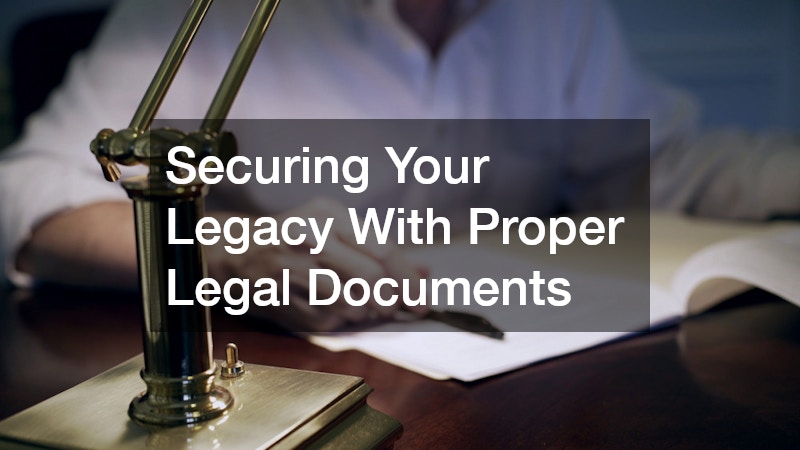Comparing Out of Court and In Court Divorce: Which Process Suits You Best?
Divorce is one of the most challenging and emotional experiences a person can face. It often brings about not only personal upheaval but also complex legal and financial matters that must be navigated carefully. When a marriage ends, the decisions made during the process can impact the lives of everyone involved, including children, extended family members, and even long-term financial stability. Because of this, choosing the right approach to divorce is crucial.
Many people assume that divorce automatically involves a lengthy court battle filled with disputes and legal fees. However, there is an alternative that is becoming increasingly popular: out of court divorce. This option can offer couples a less adversarial, more cooperative path to ending their marriage. It often saves time, reduces stress, and can help preserve a sense of respect and civility between parties. Understanding the differences between settling a divorce outside of court and traditional court proceedings is essential in deciding which path fits best with your unique circumstances.
Each divorce situation is different. Some couples can work together amicably to resolve issues, while others may face difficult conflicts that require the involvement of the court system. Whether it’s negotiating child custody arrangements, dividing assets, or addressing safety concerns, the process demands a clear understanding of the legal options available. For some, resolving their divorce outside of court provides the flexibility and control they desire, while for others, going through the court might be necessary to protect their rights and interests.
This article will explore the key aspects of divorce, focusing on the roles of legal professionals, family dynamics, financial matters, and planning for life after divorce. It will compare settling divorce matters outside of court with the traditional in-court process, highlighting how each approach affects families and individuals differently. By the end, you will have a better understanding of which process suits your needs best and how to find the support required for a smoother transition.
Finding the Right Legal Support for Your Divorce Journey

Choosing the right legal support can significantly affect how smoothly your divorce proceeds. While out of court divorce emphasizes cooperation, having an experienced legal professional guide you is still essential. The best divorce attorney can help you understand your rights, prepare necessary documentation, and negotiate terms that are fair and in your best interest. Their expertise ensures that you don’t miss important legal details or deadlines that could jeopardize your case.
A skilled attorney familiar with alternative dispute resolution techniques is especially valuable in out of court divorce cases. They can assist in mediation sessions or collaborative law meetings, helping both parties communicate effectively and reach mutual agreements. Even when the process seems amicable, professional guidance is critical to ensure that the final settlement is legally binding and comprehensive. Whether you ultimately settle outside of court or need to escalate to litigation, the right legal counsel will advocate for your interests and reduce the emotional burden of navigating the legal system alone.
Understanding Custody Decisions and Their Impact on Your Family
One of the most sensitive and complex issues in any divorce involves child custody decisions. Child custody laws prioritize the best interests of the children, but these laws vary from state to state and can be interpreted differently by judges. In an out of court divorce, parents have the opportunity to work together to develop a custody plan that suits their family’s unique needs without having to rely on a judge’s ruling.
Collaborative approaches allow parents to discuss schedules, visitation rights, and decision-making responsibilities openly. This can lead to more customized, flexible arrangements that support the child’s well-being and maintain strong relationships with both parents. However, when cooperation is not possible or when there are safety concerns, courts must step in to make custody determinations. Understanding the legal standards and how custody laws operate is essential to preparing for either an out of court or in court divorce.
When Protection Is Needed: Addressing Safety Concerns During Divorce
In some divorces, safety becomes a paramount concern. Situations involving domestic violence or abuse require immediate attention and protection for the vulnerable party. Assault lawyers often become involved when restraining orders or protective orders are necessary to ensure physical safety during and after the divorce process.
While out of court divorce offers a more peaceful route, it is not suitable in cases where one party feels threatened or endangered. In such instances, the court system provides mechanisms to protect victims and ensure their security. Legal professionals experienced in handling assault and domestic violence cases can advocate on behalf of the victim, coordinating with law enforcement and the courts to create a safe environment. Safety concerns can also influence custody decisions and visitation rights, making it crucial to address these issues through the proper legal channels.
The Role of Legal Counsel in Navigating Divorce Complexities

Divorce involves many complexities, from asset division to child support, spousal maintenance, and more. Having a lawyer who can navigate these legal intricacies is vital to achieving a fair outcome. Even in an out of court divorce, legal counsel ensures that agreements comply with state laws and protect each party’s rights.
A lawyer’s role extends beyond document preparation and courtroom representation. They provide advice tailored to your specific situation, helping you understand potential consequences of decisions made during negotiations. Skilled lawyers can identify risks and opportunities that might not be obvious to someone unfamiliar with the legal system. They also manage communications with the opposing party, reducing stress and potential conflict.
Selecting the Best Representation for Your Case
Selecting the right attorney means finding someone with not only legal expertise but also a style and approach compatible with your goals. In out of court divorce, attorneys often act more like negotiators and mediators than traditional litigators. They facilitate conversations, draft agreements, and help resolve disputes amicably.
The best attorney for your case understands the nuances of family law and the local legal environment. They stay current on changes in laws that may affect your case and use their experience to guide you effectively. Whether you need a tough negotiator or a compassionate mediator, choosing representation aligned with your needs is critical to a successful divorce experience.
How a Trusted Team Can Simplify the Divorce Process
Divorce often requires collaboration among a team of professionals beyond your attorney. A reputable law firm can provide access to financial advisors, child specialists, mediators, and other experts who support a holistic approach to divorce. This team effort is especially beneficial in out of court divorce, where the focus is on resolving matters collaboratively and minimizing conflict.
Working with a trusted team ensures that all aspects of your divorce are handled professionally. Financial complexities such as asset valuation, tax implications, and retirement accounts can be better managed when specialists are involved. Similarly, child psychologists or counselors can assist in creating custody arrangements that prioritize emotional well-being. This comprehensive approach makes the divorce process less overwhelming and more thorough.
Expert Guidance to Help You Through Your Divorce

A divorce lawyer brings valuable knowledge and experience to help you navigate the many decisions and challenges that arise. Expert guidance is crucial whether you are pursuing an out of court divorce or preparing for potential court proceedings. A lawyer can explain your options clearly and help you avoid common pitfalls.
Having an expert advocate for your interests provides reassurance and confidence. They can negotiate effectively, ensuring your needs and concerns are heard. When emotions run high, a divorce lawyer provides objective advice focused on achieving the best long-term outcomes for you and your family.
Managing Financial Challenges During and After Divorce
Divorce can bring significant financial challenges, especially when debts, shared assets, or business interests are involved. Bankruptcy may be considered by some individuals as a way to address overwhelming debt resulting from divorce settlements or changing financial circumstances.
In an out of court divorce, financial issues are often addressed through negotiated agreements that aim to be fair and equitable. However, financial complexities sometimes require court intervention, especially when parties cannot agree. Consulting with financial experts and attorneys familiar with bankruptcy laws can help you understand the implications and plan accordingly.
Proper financial planning during divorce sets the stage for a stable future. Addressing tax consequences, division of retirement funds, and ongoing support payments requires careful attention to detail and legal guidance.
Planning for Your Future Beyond Divorce
Divorce is not only an end but also a beginning. Planning for your future after divorce involves reevaluating your financial goals, living arrangements, and family responsibilities. It’s a time to take stock of what matters most and establish a new foundation that supports your independence and long-term well-being. Estate planning becomes an important consideration as you reorganize your affairs to reflect your new circumstances and ensure that your wishes are clearly documented.
A divorce settlement reached outside of court often encourages proactive planning, with couples working together to address future needs such as healthcare decisions, inheritance, and guardianship of children. This collaborative approach allows for more personalized arrangements that can adapt to changing life situations. Updating wills, trusts, powers of attorney, and beneficiary designations is essential to ensure your assets are distributed according to your intentions and to avoid confusion or disputes down the road. Estate planning attorneys can provide vital assistance in this area, helping you make informed choices that protect you and your loved ones while offering peace of mind as you move forward. By taking these steps, you lay the groundwork for financial security and a clearer path to rebuilding your life.
Securing Your Legacy With Proper Legal Documents

Securing your legacy means taking steps to make certain that your estate is handled exactly as you intend after your death. This involves working with a will attorney to create or update legal documents that specify your wishes regarding property distribution, guardianship of children, and other important matters.
Divorce often necessitates revisiting these documents to remove or add beneficiaries and adjust terms to reflect the new family structure. Proper documentation reduces the risk of disputes and ensures clarity for your heirs. Whether you have completed an out of court divorce or finalized matters in court, revisiting your estate plans is a crucial step toward long-term security.
Choosing the right path for your divorce is a deeply personal decision that depends on your individual circumstances, goals, and relationships. Resolving a divorce outside of court has emerged as an increasingly preferred option for many couples who seek to avoid the adversarial nature of court battles. By emphasizing communication, cooperation, and mutual respect, settling divorce matters amicably can lead to faster resolutions, lower costs, and less emotional strain.
Throughout this process, it remains important to have the right legal guidance. Whether working with a best divorce attorney or assembling a trusted law firm team, professional support helps navigate the complexities involved and ensures your rights are protected. When children are involved, understanding child custody laws and focusing on their best interests should always be a priority. In cases where safety concerns arise, amicable divorce settlements may not be suitable, and specialized legal help from assault lawyers may be necessary to safeguard all parties.
Financial challenges after divorce can be significant, and planning ahead with estate planning and will attorneys secures your future and legacy. Resolving your divorce outside of court provides an opportunity to address these matters collaboratively and thoughtfully. However, if cooperation breaks down, the court system remains a necessary option.
Ultimately, whether you choose to settle your divorce outside of court or proceed through the traditional route, being informed and prepared with the right legal support can make a profound difference. This approach empowers you to move forward confidently and begin the next chapter of your life with clarity and peace of mind. Settling a divorce amicably offers many benefits but requires commitment and good faith from both parties. When those conditions are met, it can be a better, more constructive way to end a marriage. Resolving divorce matters outside of court is not just a legal process — it’s a chance to create a foundation for a healthier future for all involved.


Post Comment